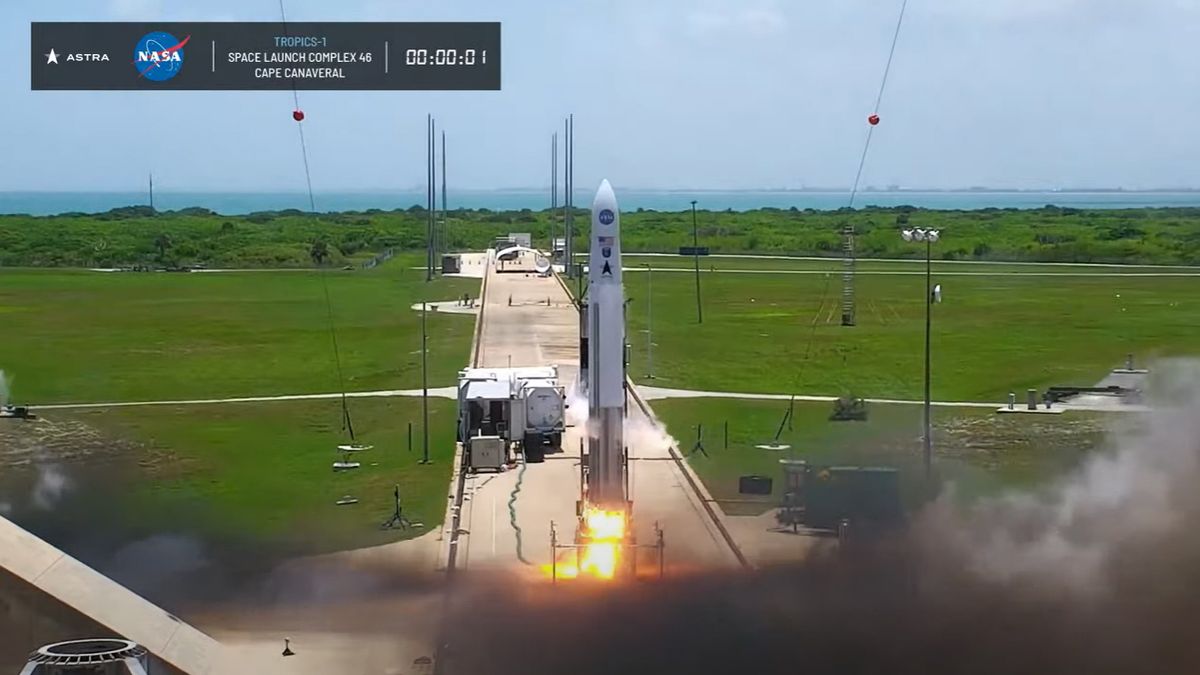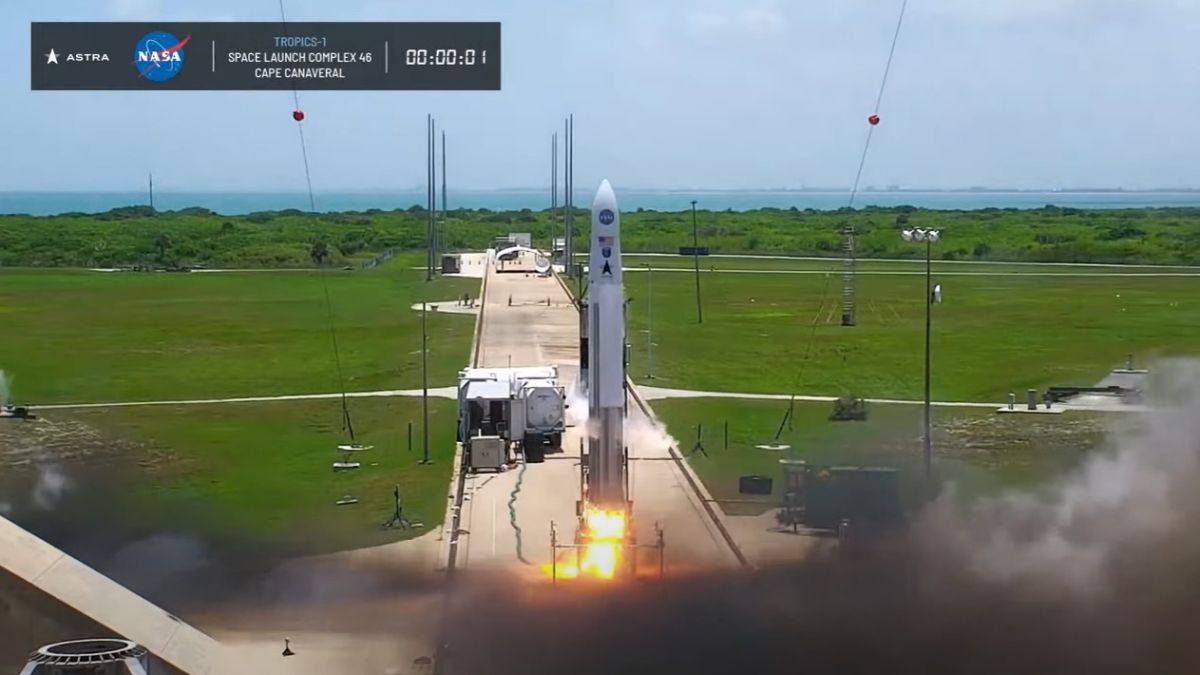
An Astra rocket carrying two small hurricane-tracking satellites for NASA failed to reach orbit Sunday (June 12) after a major malfunction shortly after liftoff.
The Astra rocket, called Launch Vehicle 0010 (LV0010), suffered a second-stage failure after lifting off from a pad at the Cape Canaveral Space Force Station in Florida at 1:43 p.m. EDT (1743 GMT). Two NASA cubesats, the first of a six-satellite fleet to track hurricanes as part of a $30 million mission, were lost.
“We had a nominal first stage flight; however, the upper-stage engine did shut down early and we did not deliver our payloads to orbit,” Astra’s Amanda Durk Frye, senior manager for first stage and engine production, said during live launch commentary.
“We have shared our regrets with @NASA and the payload team,” Astra officials added in a Twitter update (opens in new tab). “More information will be provided after we complete a full data review.” Sunday’s attempted launch was initially targeted for 12 p.m. EDT (1600 GMT), but was delayed by a boat in the launch zone and a fueling issue.
Video: Watch Astra’s LV0010 rocket launch failure with NASA satellites
Astra’s LV0010 mission was carrying the first satellites of NASA’s Time-Resolved Observations of Precipitation structure and storm Intensity with a Constellation of Smallsats (TROPICS). It was the first of three planned TROPICS missions this year by Astra, each carrying two NASA cubesats about the size of a loaf of bread, to complete the hurricane-watching constellation. Astra’s three-mission TROPICS deal with NASA is worth a total of $7.95 million for the company.
“TROPICS will give us very frequent views of tropical cyclones, providing insight into their formation, intensification, and interactions with their environment and providing critical data for storm monitoring and forecasting,” Scott Braun, a research meteorologist at NASA’s Goddard Space Flight Center in Greenbelt, Maryland, said in a statement (opens in new tab) before launch.
Related stories:
By using three pairs of TROPICS satellites, each in a different orbit, NASA hoped to monitor hurricanes and tropical storms every hour. It’s unclear if the agency can still do that with just four satellites, or if the two lost in today’s launch failure will be replaced.
Sunday’s failed launch is the second mishap this year for Astra. In February, the California-based company failed to launch four NASA cubesats as part of the ELaNa 41 mission, a flight that was also staged from its Florida launch pad and marked Astra’s first attempt to launch payloads for a customer. An issue with the rocket’s payload fairing was to blame, with Astra implementing a fix to avoid a recurrence.
Astra successfully reached orbit with customer payloads a month later when its LV0009 rocket lifted off from a pad at the Pacific Spaceport Complex on Alaska’s Kodiak Island, where the company had launched four previous test flights. The company’s first successful orbital launch occurred on one of those test flights in November 2021.
Email Tariq Malik at tmalik@space.com (opens in new tab) or follow him @tariqjmalik (opens in new tab). Follow us @Spacedotcom (opens in new tab), Facebook (opens in new tab) and Instagram (opens in new tab).



